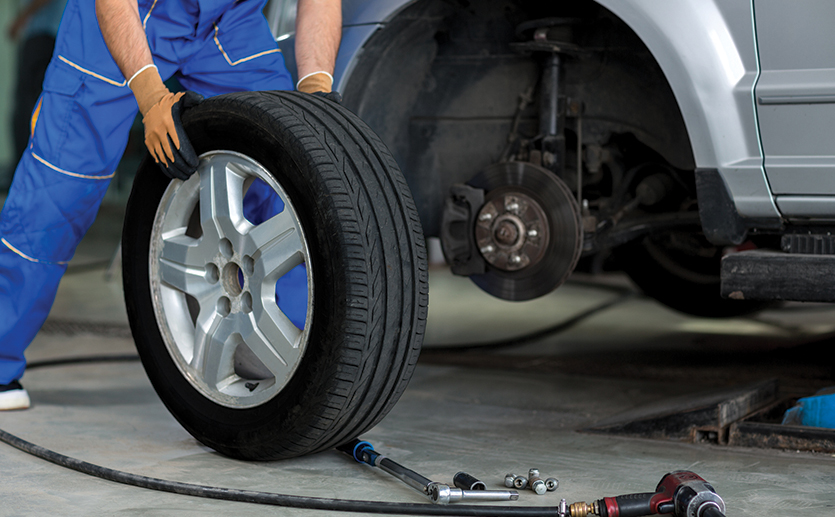The Ultimate Tire Fixing List for Security and Financial Savings
Preserving optimal tire conditions is a basic aspect of making sure safety on the road and maximizing cost-efficiency in the long run. From tire pressure to step depth, each element plays a crucial function in the total performance of your car.
Relevance of Tire Upkeep
Normal tire upkeep is vital for ensuring lorry security and extending the life-span of your tires. Furthermore, rotating your tires at advised periods promotes also step wear, leading to a much longer lifespan for your tires and far better handling of your automobile.
Additionally, normal tire evaluations can help determine potential problems such as punctures, cuts, or protrudes, which if left unattended, might lead to tire failing. morris tire. Correct alignment and harmonizing contribute to a smoother experience, improved gas efficiency, and prevention of irregular tire wear. Finally, focusing on tire maintenance not only ensures your safety and security when driving yet likewise conserves you money by prolonging the life of your tires and staying clear of costly fixings or replacements
Monitoring Tire Pressure
To check tire pressure, utilize a tire pressure scale to gauge the air stress in each tire, including the spare. It is advisable to examine tire stress when the tires are cool, as driving warms the tires and boosts pressure readings. By keeping correct tire stress, you not only ensure your safety and security however additionally prolong the life expectancy of your tires and optimize gas economic situation.
Checking Tread Depth
To make certain ideal safety and performance of your lorry, a crucial facet of tire upkeep involves reviewing the walk depth regularly. The step on your tires plays a crucial role in keeping traction on the road, specifically in wet or unsafe conditions - tire shop near me. Inadequate tread depth can result in decreased hold, longer braking ranges, and a raised danger of hydroplaning
One typical method to examine tread deepness is by utilizing a walk depth hop over to here gauge. Put the gauge right into the walk grooves to measure the deepness. Many brand-new tires have a tread depth of around 10/32 to 11/32 of an inch. As the step wears down, it is necessary to check it on a regular basis. The minimum legal step depth limitation is 2/32 of an inch in the majority of states, but for improved safety and security, it is recommended to replace tires prior to they reach this restriction.

Consistently inspecting your walk deepness and changing tires when necessary will not only improve your safety when driving yet additionally contribute to cost savings by enhancing gas effectiveness and expanding the life-span of your tires.
Identifying Tire Damages
Examining your tires for signs of damage is crucial for keeping roadway security and avoiding potential hazards. When evaluating your tires, look out for cuts, leaks, protrudes, splits, and any type of other problems on the walk or sidewall.

Increasing Tire Lifespan
To expand the life-span of your tires, begin by ensuring they are effectively blown up click to investigate according to the maker's recommendations. Additionally, revolve your tires on a regular basis to explanation promote even tread wear. Frequently examine your tires for signs of damages, punctures, or irregular wear, and attend to any concerns quickly to prevent more damage.

Conclusion
In verdict, routine tire maintenance is critical for making sure safety and security and conserving money over time. By checking tire stress, examining tread depth, identifying tire damage, and extending tire life expectancy, drivers can stop crashes and expensive fixings. Prioritizing tire upkeep is an easy yet reliable way to remain safe when traveling and avoid unnecessary expenditures.